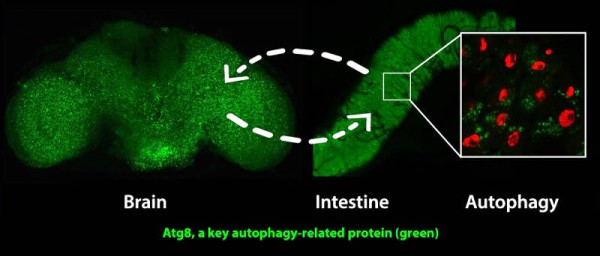Over the years, your body loses the ability to prevent diseases. The aging process is a key factor in this condition. However, is it always so?
A team of researchers from UCLA, led by David Walker, has identified a gene that can bypass the aging process. They found a way to affect one part of the body, which will cause a reaction in the gene in a different part of the body. The results of this research were published in the World Economic Forum.
AMP-activated protein kinase (AMPK) is an enzyme in eukaryotic organisms that helps regulate cellular energy levels. Low energy activates AMPK, which synthesizes ATP and by fatty acids increases the level of glucose. Fruit flies that own this gene live 30% longer. This gene extends its lifespan by an average of 6 to 8 weeks. It improves the quality of their life also. The Walker’s team discovered that fruit flies that live longer, were healthier.
If a similar effect occurred in humans, it would mean slowing down the aging process and extending the lifespan by 24 years.

Delay of the Aging Process.
This finding is the basis for further intervention on the delay of the aging process and the beginning of many human diseases, such as Parkinson's disease, Alzheimer's disease, cancer, stroke, diabetes, cardiovascular diseases, and others. More research is needed to prove this, but the goal is realistic - to promote healthy aging in humans. Microautophagy is the key to this process. For example, if cells in the brain have damaged or old pieces and those cells stay there, they can cause Alzheimer's or Parkinson's disease. Clearing this mess avoids the negative effects of the aging process in other parts of the body. Previous research has shown that AMPK can activate autophagy and this latest research shows that it can be strengthened. They found that when this gene is activated in the nervous system of fruit flies, there is an increase in autophagy in the stomach. Furthermore, activation of AMPK in the intestines causes autophagy in the brain.
Leave a Comment
